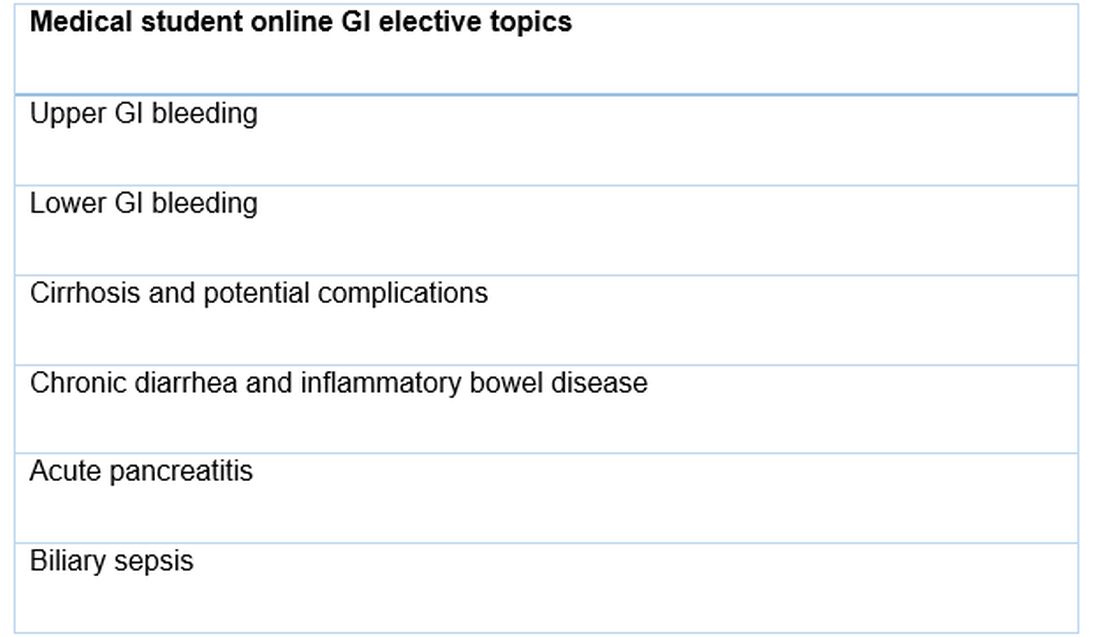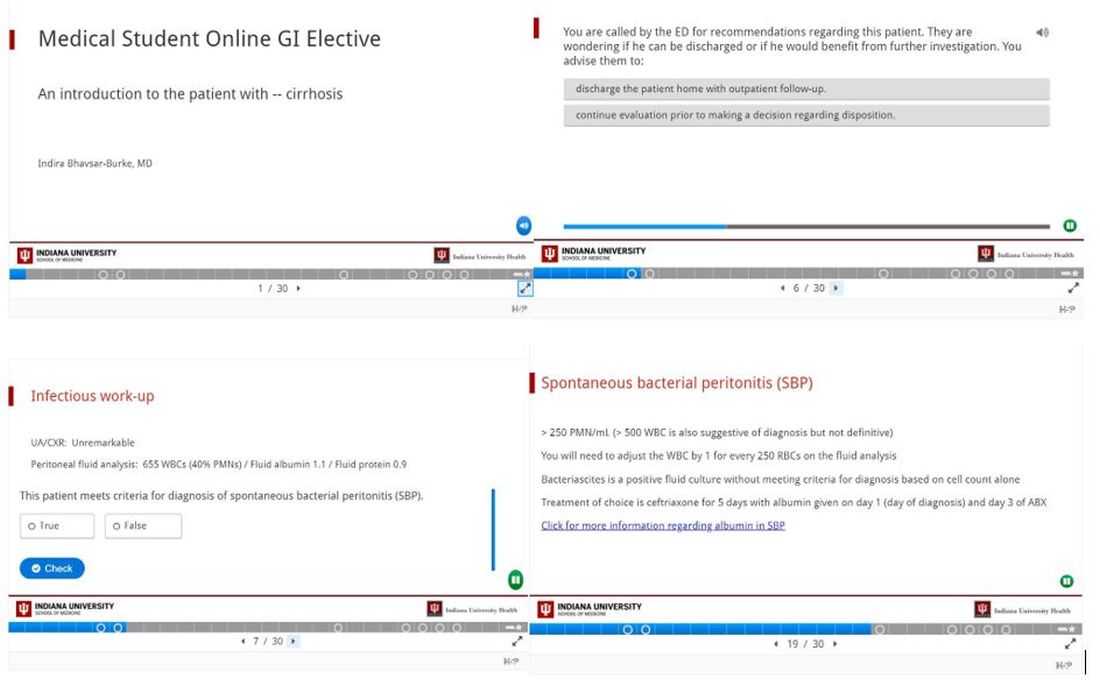GI fellows’ contribution
As our program encouraged us to come together during this time to support each other, we realized that while our clinical duties may look different during the COVID-19 crisis, our responsibility to learners was more important than ever. At many academic institutions, GI fellows are referred to as “the face of the division” owed in large part to our consistent presence on consult services and roles as teachers for medical students and residents who rotate with us. In an effort to assist the medical school’s charge to rapidly generate at-home curriculum for our students, we created an online curriculum for medical students to complete during the time they were previously scheduled to rotate with us on consults either as third- or fourth-year students.
We designed a series of interactive podcasts covering six topics that are commonly encountered issues on the GI consult service: upper GI bleeding, lower GI bleeding, biliary sepsis, acute pancreatitis, chronic diarrhea with a new diagnosis of inflammatory bowel disease, as well as cirrhosis and its associated complications.
The podcasts were created using H5P, a free and open-source collaboration framework that allows users to produce interactive slide shows, videos, quizzes, and more. Multiple integration platforms for H5P exist allowing content to be directly embedded into online syllabi for students to easily access from their computers, tablets, or smartphones. Examples of these platforms include Canvas, Moodle, and Blackboard, among others.3 Our podcasts were formatted as case-based presentations with comprehension questions built into the instructive session so that students may test their understanding prior to proceeding through the module. Each podcast includes a didactic lecture covering epidemiology, patient presentation, disease evaluation and management, and clinical complications that are encountered for each of the six topics listed above. The podcast content, slide shows, and narration were created solely by our GI fellows and published online for students within 4 weeks to provide them with learning resources as quickly as possible. These podcasts have since been integrated into a formal online curriculum with the help of educators from the AGA Education Committee and have been shared with GI educators at more than 50 medical schools in the United States.



